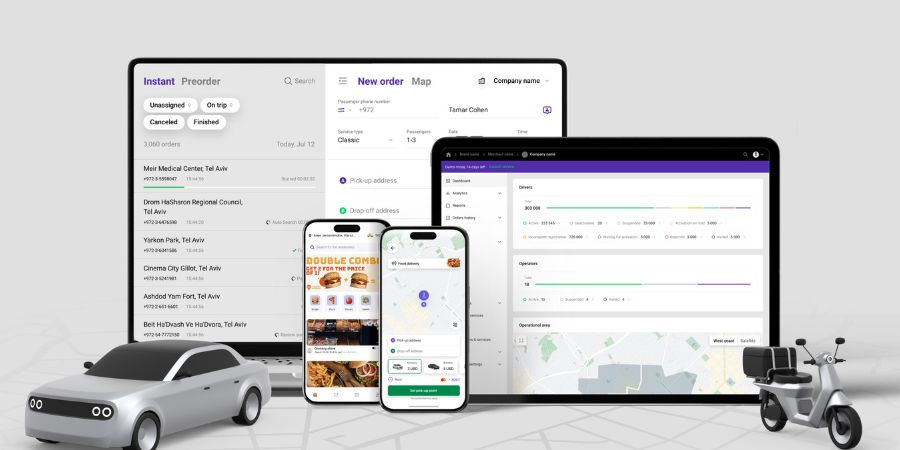Israel’s urban landscape faces chronic traffic congestion, scarce parking, and limited public transit. High import taxes and complex regulations further complicate ride-hailing growth.
Yet even in this constrained environment, opportunities exist. As Eugene Suslo, CEO of Onde.app, puts it:
“Complexity doesn’t preclude progress – it needs operational flexibility and local understanding.”
Structural barriers to growth are real, though solvable
Public transport struggles with coverage and reliability, making private vehicles the default choice and worsening congestion. Car ownership is costly due to import taxes of up to 35%, environmental levies, and other fees. Security risks also affect ride-hailing economics, requiring strict safety protocols.
“There’s no single bottleneck,” notes Suslo. “It’s a layered problem. Solving it takes more than just an app.”

What’s needed to move forward
Experts point to reform and innovation despite these hurdles. Investment in infrastructure, such as Tel Aviv’s light rail, could integrate with ride-hailing services to reduce car dependency and improve coverage in underserved areas. Tax reform could also help modernize fleets, especially electric vehicles (EVs), which now receive government incentives.
Precise pick-ups, flexible rates between zones, and a smart route optimization algorithm improve operational efficiency, decreasing drivers’ idle times and passengers’ waiting times. Real-time analytics and AI recommendations for better performance ensure company growth, while safety features, which white-label ride-hailing solutions like Onde offer – drivers’ checkup, SOS button, Follow My Ride – guarantee a safer experience for both passengers and drivers.
“Our partners aren’t trying to outspend global giants,” says Suslo. “They’re building local trust and adapting to regional nuances.”
Insights from nearby markets
Operators who try to replicate global ride-hailing giants tend to struggle. Instead, hyperlocal, adaptable models often succeed. Onde’s experience across diverse markets – including in Israel’s Arab-speaking communities, where cultural and linguistic nuances require tailored approaches:
- NEMT: Onde’s clients in Eastern Europe partnered with healthcare providers to connect patients to clinics, especially in areas with limited public transit.
- Delivery-enabled ride-hailing: In times of COVID-19, crisis or conflict, delivering groceries, meds, or packages becomes a must-have. Onde sees growing interest in ride-hailing+delivery hybrids from Israeli prospects.
- Women-only services: While not widespread in Israel, such services resonate with specific communities, mainly Arab and ultra-Orthodox Jewish women, where cultural and religious norms call for women-driven, women-only transport. For example, this model helped build loyal user bases in Africa. In Israel, it remains a niche but meaningful segment, aligned with growing public discourse around safety and gender-sensitive mobility.
- EV-based fleets: Electrified fleets not only reduce costs over time but also align with Israel’s green mobility goals. Onde helps operators track energy usage and optimize charging.
Israel at a crossroads
The market is torn between structural and economic barriers and a tech-savvy population eager for better mobility options. Progress requires supportive regulation, infrastructure upgrades, and business models prioritizing local needs over global scale. With demand clear, the challenge lies in delivering solutions rooted in both code and context.





